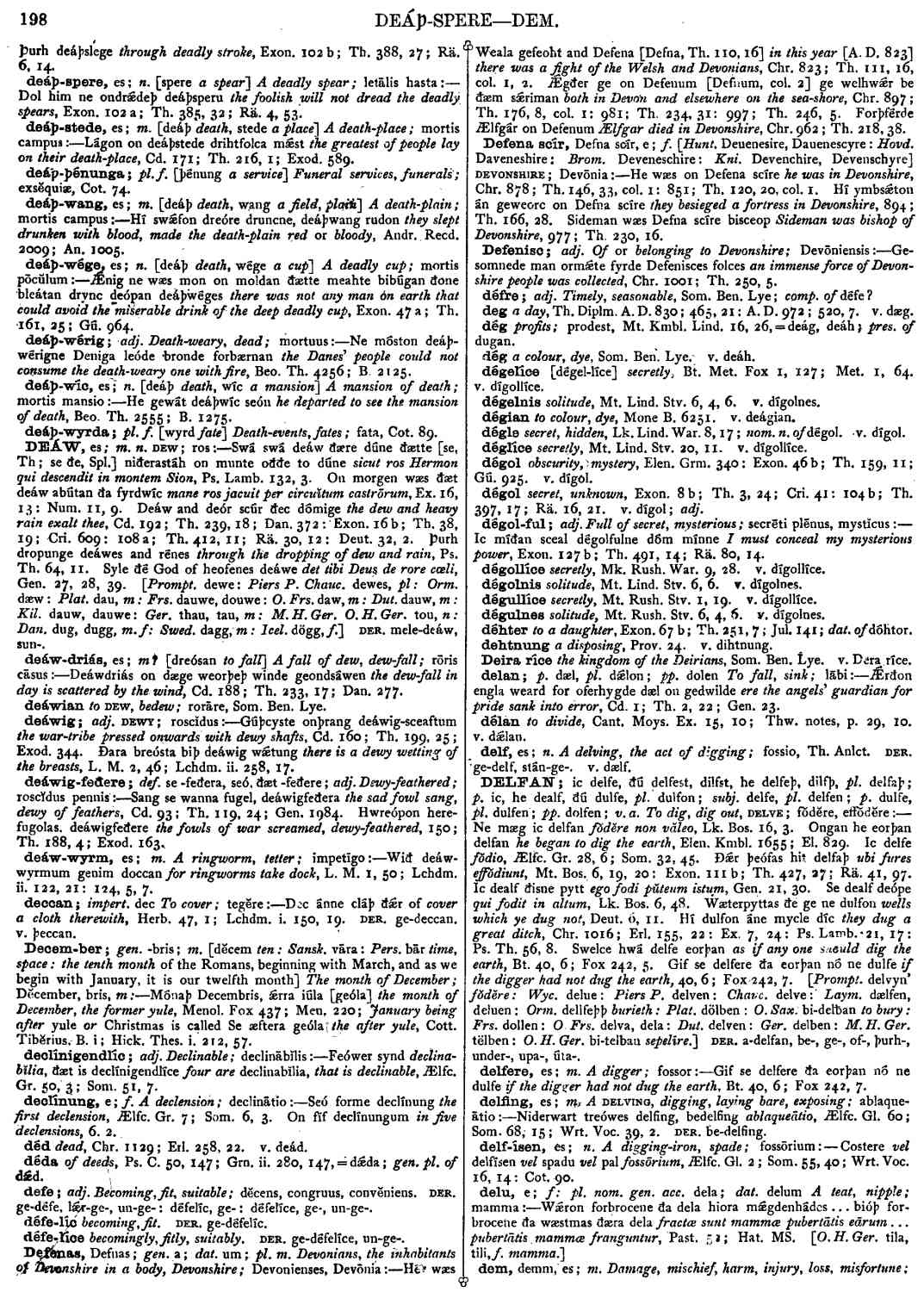dem
- noun [ masculine ]
-
Ðǽr wæs án swá micel dem
there was so great a loss,
- Ors. 6, 14;
- Bos. 122, 21.
-
Be ðæs demmes ehte
pro damni æstimatiōne,
- Ex. 22, 5.
-
He ðone demm his giémeliéste gebétan ne mæg
he cannot remedy the mischief of his neglect,
- Past. 36, 3;
- Hat. MS. 47 a, 22.
-
Ne wéne ic ðæt ǽnig man atellan mǽge ealne ðone dem ðe Rómánum gedón wearþ
I do not think that any man can tell all the harm which was done to the Romans,
- Ors. 2, 8;
- Bos. 51, 28.
-
Hit oft gebýraþ ðæt seó leáse wyrd ne mæg ðam men dón nǽnne dem
it often happens that deceitful fortune can do no injury to a man,
- Bt. 20 ;
- Fox 70, 23.
-
He geman ðone demm oððe ðæt bismer, ðæt him ǽr gedón wæs
he remembers the injury or the disgrace that was formerly done to him,
- Past. 33, 7;
- Hat. MS. 43 b, 2: Ors. 2, 4;
- Bos. 43, 29.
-
Óðrum monnum þyncþ ðæt hie mǽstne demm [dem MS. Cott.] þrówigen
it seems to other men that they suffer the greatest misfortune,
- Past, 14, 5;
- Hat. MS. 18 a, 26.
Bosworth, Joseph. “dem.” In An Anglo-Saxon Dictionary Online, edited by Thomas Northcote Toller, Christ Sean, and Ondřej Tichy. Prague: Faculty of Arts, Charles University, 2014. https://bosworthtoller.com/7552.
Checked: 1